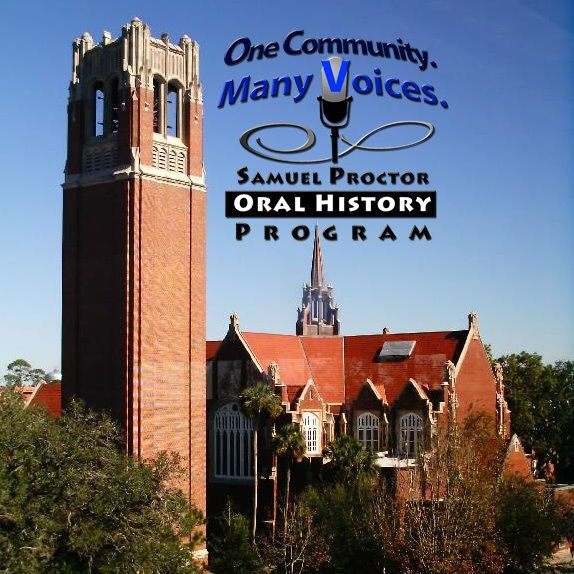
Podcast – Samuel Proctor Oral History Program
SPOHP
Official free, community podcast of the award-winning University of Florida Samuel Proctor Oral History Program. Episodes share first-person interviews and living histories of individuals from all walks of life, and are created by staff, undergraduate and graduate students, and community volunteers. SPOHP: "One Community, Many Voices."
- Dr. Ortiz is teaching an intro to oral history course…

SPOHP Director Dr. Paul Ortiz is teaching a course this spring on oral history!
This interdisciplinary seminar is an intensive introduction to the
theory and practice of oral history. Students will have access to the
resources of the award-winning Samuel Proctor Oral History Program. We
will learn the craft of oral history interviewing and digital
production. We will study the burgeoning impact of oral history in human
rights and racial truth and reconciliation initiatives, social justice
documentaries, digital archives, public museums, other contexts. We will
cover a wide range of debates including the paradox of memory, the role
of nation, class, gender, genocide, and racial inequalities in shaping
memories. Students will be able to use the skills learned in this class
in order to become more effective interviewers, digital producers and
writers in various fields including history, journalism, film, radio, as
well as ethnography. Case studies will include oral history methods in
US, Latin American, European, and African histories and texts.The post Dr. Ortiz is teaching an intro to oral history course… appeared first on Samuel Proctor Oral History Program.
9 January 2020, 6:53 pm - Safe Spaces: Episode 3 – “Miracle On 13th Street”
In this latest episode of our podcast series Safe Spaces, Anupa Kotipoyna looks back at the creation of the India Cultural and Education Center (ICEC) in Gainesville, Florida.
The post Safe Spaces: Episode 3 – “Miracle On 13th Street” appeared first on Samuel Proctor Oral History Program.
15 February 2018, 6:50 pm - Our Year-End Journal is Available Now
Dear Friends of the Samuel Proctor Oral History Program,
As you will read in this exciting end-of- year progress report, SPOHP has reached more students, scholars, and members of the general public than ever. We have conducted community-based oral history workshops with churches, businesses, university classes, veteran’s groups, African American history museums, Native American nations and much more. Thanks in large part to your generosity we have been able to provide logistical support for social-justice research projects throughout the Americas and we provided transformative and life-changing educational opportunities for hundreds of students.
In the summer of 2017 we embarked upon our 10th annual field work trip to the Mississippi Delta. In addition to interviewing legendary civil rights organizers, our team performed a day of service at the Emmett Till Museum in Glendora and sponsored public educational forums on bringing civil rights education to K-12 students in Mississippi and the South generally. Teaching students how to learn outside of the classroom is one of the Samuel Proctor Oral History Program’s specialties. From the moment when our founder Dr. Samuel Proctor trained a cohort of graduate students to conduct oral history interviews with Native Americans in Florida, North Carolina and Alabama in the early 1970s, SPOHP’s mission has been to promote experiential learning, civic engagement, and history outside of the box—and outside of the campus. In an era of “fake news” we train interns how to conduct rigorous research. In a time of polarized debates, we show students how to listen carefully—especially to people who share diverse opinions—and we engage students in learning the age-old art of conversation. When we return from the field, we teach students the art of digital video and audio production which gives them the ability to create podcasts and documentaries on important social issues that have gained broad audiences.
Of course, none of this is possible without your support. If you like what you read in this newsletter, I hope that you will join me in helping us celebrate the 50 th year of SPOHP by making a tax-deductible donation to help sustain the work of the Samuel Proctor Oral History Program. In addition, if you have a friend or family member who may be so inclined, please pass this newsletter along to them. Finally, I hope that you will visit or phone us sometime in the New Year. Our students, staff and volunteers treasure the opportunity to personally share their experiences with members of the Proctor Program Family! Thank you as always for your consideration and your support.
Sincerely Yours,
Paul Ortiz
Check out our year-end journal here.
The post Our Year-End Journal is Available Now appeared first on Samuel Proctor Oral History Program.
15 December 2017, 8:58 pm - “Surviving & Resisting: Defending DACA A Toolkit For DREAMers.”
We wanted to share a sheet that the directors of the IC-Race (Immigration, Critical Race and Cultural Equity) Lab at the Chicago School of Professional Psychology, Drs. Nayeli Y. Chavez- Dueñas and Hector Y. Adames developed, “Surviving & Resisting: Defending DACA A Toolkit For DREAMers.” Please share widely with anyone who may benefit from this toolkit; the mental health of DREAMers matters.
Click here for access to this document.
The post “Surviving & Resisting: Defending DACA A Toolkit For DREAMers.” appeared first on Samuel Proctor Oral History Program.
13 September 2017, 8:19 pm - SPOHP Open House Scheduled for Sept. 29
September 29th from noon to 2 PM, SPOHP is hosting an Open House in the SPOHP office to welcome students and faculty alike to get acquainted with our program, staff and dozens of exciting on going projects. Visitors can expect to enjoy refreshments as they learn about SPOHP’s fieldwork, internships, and volunteer opportunities as well as our many upcoming public programs and experiential learning opportunities.
The post SPOHP Open House Scheduled for Sept. 29 appeared first on Samuel Proctor Oral History Program.
13 September 2017, 6:49 pm - Safe Spaces: Episode 2 – “Friends with Weapons”http://ufdcimages.uflib.ufl.edu/AA/00/05/48/49/00001/Safe%20Spaces%20OHFC.mp3
This episode of the Safe Spaces series focuses on an African American armed defense organization that protected Civil Rights Movement demonstrators in Ocala, Florida in the 1960s. Challenging the misconception that the Civil Rights Movement was based entirely on non-violence, the story of the Ocala Hunting and Fishing Club illustrates the diversity of the Movement and offers an example of the complexity of tactics that various local communities needed to deploy in order to protect the people while they fought for their rights. In understanding current debates on “safe spaces,” it is important to understand the efforts historically required of marginalized groups in the U.S. to ensure that they could even do things such as openly discuss their rights as American citizens.
Featured interviews include: AAHP-138B Cranford Ronald Coleman, AAHP-329 Ocala Hunting and Fishing Club, AAHP-358A Ann Pinkston, AAHP-360 Dorsey Miller, AAHP-362B Dan Harmeling, AAHP-367 May Stafford, AAHP-384 Juanita Cunningham, AAHP-385 William James, AAHP-386 David Rackard, AAHP-390 Fred Pinkston
Featured music artists include:
- Lee Rosevere
- Dave Depper
- Kevin Hartnell
- The Trumpeteers
- Robin Grey
- Billy Torello
- Mr. and Mrs. Smith
- Dana Boule
- MC Cullah
- Doctor Turtle
- Blue Dot Sessions
- Acreil
- Will Bangs
- Ari de Niro
Photo: (State Archives of Florida/Hackett.)
The post Safe Spaces: Episode 2 – “Friends with Weapons” appeared first on Samuel Proctor Oral History Program.
24 April 2017, 3:17 pm - Fall 2017 Internship Applications Are Now Available
The Fall 2017 Internship Application is now open! SPOHP’s semester-long academic internship is available to graduate and undergraduate students for credit as an introduction to the field of oral history.
The Fall 2017 Social Justice Initiatives internship offers a space for students to pursue their own interests in social justice research through training and mentoring in oral history and digital humanities methodologies. Interns may develop skills in interviewing and fieldwork methods; Transcription and interview processing; Podcasting and audio editing; Social media and event promotion; Short documentaries and video editing; Public and community engagement. Final projects involve conducting one or more oral history interviews and creating digital presentation for the public.
For more information, contact the Internship Graduate Coordinator Raja Rahim. Applications are due by May 1st, 2017. Please email applications to Raja Rahim or deliver to SPOHP offices, Pugh Hall 241.
- Download the Fall 2017 SPOHP Internship Application here!
- Share our New 2017 Fall Internship Flier!
The post Fall 2017 Internship Applications Are Now Available appeared first on Samuel Proctor Oral History Program.
3 April 2017, 4:59 pm - Big News: We’re On the Air!
Beginning Thursday, March 16th, the SPOHP Radio Hour hits the airwaves DAILY at 8:00 a.m. on WUBA 88.1 FM.
Drawing from the 7,500+ interviews in the Samuel Proctor Oral History Program archive at the University of Florida, the SPOHP Radio Hour will air daily at 8 am on WUBA 88.1 FM with fascinating stories on people from all walks of life, and places and events both famous as well as hitherto hidden from history!
This week’s first installment of the SPOHP Radio Hour show explores what a “safe space” means to diverse groups of students and faculty at the University of Florida, and what influences them to create those spaces on campus. We’ll be examining what it took to create the Institute of Hispanic-Latino culture and the Institute of Black Culture at the University of Florida as well as the significance of Ethnic Studies programs today for students, staff, faculty and the public in general.
Click here to stream WUBA 88.1 FM live!
WUBA 88.1 FM is a wonderful, community-based radio station located in High Springs, Florida and covering Alachua, Gainesville, Jones, Lake City, Fort White, and soon to expand!
Enjoy the SPOHP Radio Hour at 8:00 a.m, on WUBA 88.1 FM starting this Thursday!
Please help us promote people’s stories from the Proctor Program archive by sharing this Facebook announcement link on your Scoial media outlets
Thank You!
The post Big News: We’re On the Air! appeared first on Samuel Proctor Oral History Program.
15 March 2017, 6:53 pm - SPOHP iTunes Podcast Series
The SPOHP iTunes Podcast features four separate series which are all compiled from diverse oral history collections, including the Florida Queer History Project, Farmworker Association of Florida archive, Confederate Veterans Collection, African American History, and more. Most episodes of each series are 25 minutes or less to facilitate easy access to local history for students, teachers, and the general public.
List of Our Current Podcast Series
- Safe Spaces
- Ottoman Greeks of the United States (OGUS)
- Gainesville 8 (Three part series)
- Voices from the Archives
Visit iTunes to listen and subcribe!
Recently Released Episodes
Gainesville Eight: Part 3 (Final Cut)
In this final installment of SPOHP volunteer John Paul Lorie’s three-part podcast on the Gainesville Eight, we hear the story of the federal government’s indictment of the Eight on charges of conspiracy to disrupt the 1972 Republican National Convention. We hear the lawyer for the defendants assess the prosecution’s case, and describe the legal strategy his firm adopted for defending these veterans in court. We also hear direct testimony from members of the Eight including Scott Camil, as well as other VVAW members who were subpoenaed to testify, in describing the FBI’s infiltration of VVAW and the flagrant violations of their constitutional rights that ensued. Given that we are currently witnessing–and some of us participating in–a new era of demonstration and direct action, this story is of particular relevance to questions of lawful protest and the constitutional rights of demonstrators.
Ottoman Greeks of the United States (OGUS): The Acropolis and the Madonna – A Case Study of Refugee Deportation from the United States
This is our first podcast in the Ottoman Greeks of the United States (1904-1924) podcast series. It tells the story of the S.S. Acropolis, a ship that transferred Armenian and Greek refugees from the city of Smyrna to Ellis Island in the winter of 1922. Modern Syrian refugees are experiencing similar trials and tribulations as the Armenian and Greek refugees from Smyrna. This podcast highlights those similarities. It transports its listeners back to the early 20th century, and weaves together newspaper accounts of the Smyrna refugees’ story with recollections of descendants of immigrants from the Ottoman Empire.
Safe Spaces: Episode 1 – No Place Like Home
This first episode of the Safe Spaces series spring-boards off of the controversial acceptance letter sent out this year to incoming students of the University of Chicago, and follows a racially charged and abnormally divisive presidential election. This episode explores what a safe space means to different students and faculty at the University of Florida and what influences them to create those spaces on campus. We’ll be examining what it took to put institutes such as IBC and La Casita in place as well as the significance of Ethnic Studies programs for students of all walks of life. This episode contains royalty-free music created by Bensound, Lee Rosevere, Arsonist and Kevin Hartnell. Links below:
Bensound musicLee Rosevere musicArsonist musicKevin Hatnell music
Gainesville 8: Episode 2
In this second installment of SPOHP volunteer John Paul Lorie’s three-part podcast on the Gainesville Eight, we hear Scott Camil and other members of the Vietnam Veterans Against the War (VVAW) describing the founding of the organization and the recruitment of new members. One of the VVAW’s first major actions concluded with a march on the gates of the Capitol in which decorated veterans made short statements into a microphone and then threw their medals over the fence and toward the Capitol building. We also hear about the U.S. government’s harassment of Scott Camil in response to the effectiveness of his activism, preparing us for next week’s final installment which will describe the indictment of the Gainesville Eight on charges of conspiracy to disrupt the 1972 Republican National Convention.
Gainesville 8: Episode 1
Just on the heels of Veteran’s Day, SPOHP volunteer John Paul Lorie has assembled a three-part special feature on the Gainesville Eight. Members of the Vietnam Veterans Against the War, the Gainesville Eight were indicted on charges of conspiracy to disrupt the 1972 Republican National Convention in Miami Beach. This first podcast follows one member of the Gainesville Eight, Scott Camil, through his military experiences in Vietnam and then the events that led him to join the VVAW.
SPOHP Special Feature: The Ongoing Fight for Equal Education in Cleveland, Mississippi
A highlight of SPOHP’s annual Mississippi Freedom Project research trip this year was the opportunity for staff member Anupa Kotipoyina to interview Edward Duvall, a pastor who has been working with the local community to finally desegregate all schools in Cleveland, Mississippi. Despite a 1969 desegregation order, the Cleveland School District continues, more than forty years later, in a legal battle with the U.S. Department of Justice, recently appealing a May 2016 order to consolidate segregated middle and high schools. In this podcast, Duvall describes the role he and other community members have played in the stand against this issue, as well as the challenges of working within the legal and school systems to have their voices heard.
Voices From the Archives: Putting Food On America’s Table – Part 1
Our first entry of the Voices from the Archives series, “Putting Food on America’s Table,” features interviews with three women who grew up in farmworker families in central Florida. Their stories describe challenging living conditions, harrowing working conditions, and lasting impacts on the health of themselves and their families while, as Ms. Betty Dubose describes it, “putting food on America’s table.” We would like to thank Bensound and Incompetech for the royalty-free music that we were able to use in this podcast.
Search our iTunes account for other podcasts!
- Women Activist Feminists with Medea Benjamin (WAF-024)
- Community Organizing in America with David Barsamian (COA-025)
- Addiction History Project with Erika Clarke (ADHP-011)
- Addiction History Project with Tina Holmberg (ADHP-005)
- Florida Queer History with Fred Pratt (FQH-001)
- African American History Project with Joel Buchanan (FAB-039)
- Farmworker Association of Florida with Carol Johnson (FAF-005)
- Farmworker Association of Florida with Marie Francois (FAF-015)
- Vietnam War Veterans with Mary Bahr (VWV-048)
- Confederate Veterans Collection with Sarah Carrol (CONVET-003)
For transcripts of these interviews and more information about the podcast series, please contact the Samuel Proctor Oral History Program at 241 Pugh Hall or 352-392-7168.
The post SPOHP iTunes Podcast Series appeared first on Samuel Proctor Oral History Program.
24 January 2017, 2:45 pm - Gainesville 8: Episode 3 (Final Cut)http://ufdcimages.uflib.ufl.edu/AA/00/05/35/75/00001/Gainesville%208%20Episode%203%20Final.mp3
In this final installment of SPOHP volunteer John Paul Lorie’s three-part podcast on the Gainesville Eight, we hear the story of the federal government’s indictment of the Eight on charges of conspiracy to disrupt the 1972 Republican National Convention. We hear the lawyer for the defendants assess the prosecution’s case, and describe the legal strategy his firm adopted for defending these veterans in court. We also hear direct testimony from members of the Eight including Scott Camil, as well as other VVAW members who were subpoenaed to testify, in describing the FBI’s infiltration of VVAW and the flagrant violations of their constitutional rights that ensued. Given that we are currently witnessing–and some of us participating in–a new era of demonstration and direct action, this story is of particular relevance to questions of lawful protest and the constitutional rights of demonstrators.
The post Gainesville 8: Episode 3 (Final Cut) appeared first on Samuel Proctor Oral History Program.
24 January 2017, 2:45 pm - Ottoman Greeks of the United States (OGUS): The Acropolis and the Madonna – A Case Study of Refugee Deportation from the United Stateshttp://ufdcimages.uflib.ufl.edu/AA/00/05/31/10/00001/The%20Acropolis%20and%20the%20Madonna-%20A%20Case%20Study%20of%20Refugee%20Deportation%20from%20the%20United%20States.mp3
This is our first podcast in the Ottoman Greeks of the United States (1904-1924) podcast series. It tells the story of the S.S. Acropolis, a ship that transferred Armenian and Greek refugees from the city of Smyrna to Ellis Island in the winter of 1922. Modern Syrian refugees are experiencing similar trials and tribulations as the Armenian and Greek refugees from Smyrna. This podcast highlights those similarities. It transports its listeners back to the early 20th century, and weaves together newspaper accounts of the Smyrna refugees’ story with recollections of descendants of immigrants from the Ottoman Empire.
The post Ottoman Greeks of the United States (OGUS): The Acropolis and the Madonna – A Case Study of Refugee Deportation from the United States appeared first on Samuel Proctor Oral History Program.
13 January 2017, 7:34 pm - More Episodes? Get the App
Your feedback is valuable to us. Should you encounter any bugs, glitches, lack of functionality or other problems, please email us on [email protected] or join Moon.FM Telegram Group where you can talk directly to the dev team who are happy to answer any queries.

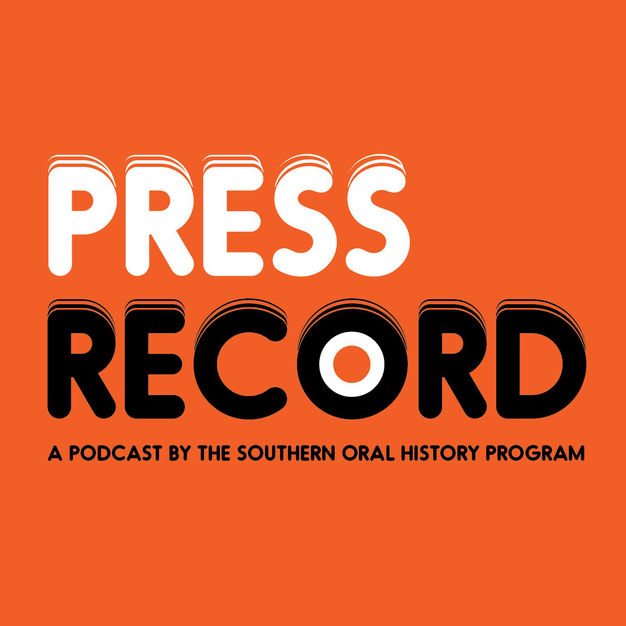 PRESS RECORD: The SOHP Podcast
PRESS RECORD: The SOHP Podcast
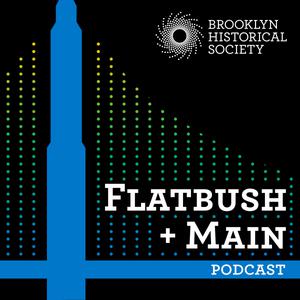 Flatbush + Main: A Podcast from Brooklyn Historical Society
Flatbush + Main: A Podcast from Brooklyn Historical Society
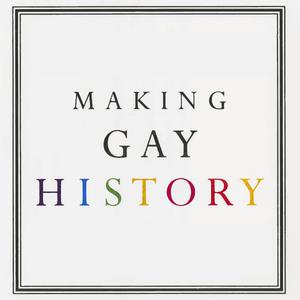 Making Gay History | LGBTQ Oral Histories from the Archive
Making Gay History | LGBTQ Oral Histories from the Archive
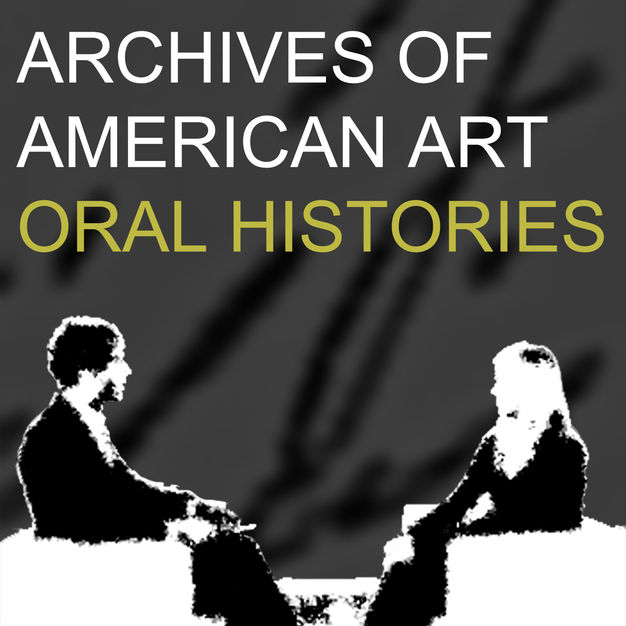 Oral History Collection from the Archives of American Art
Oral History Collection from the Archives of American Art